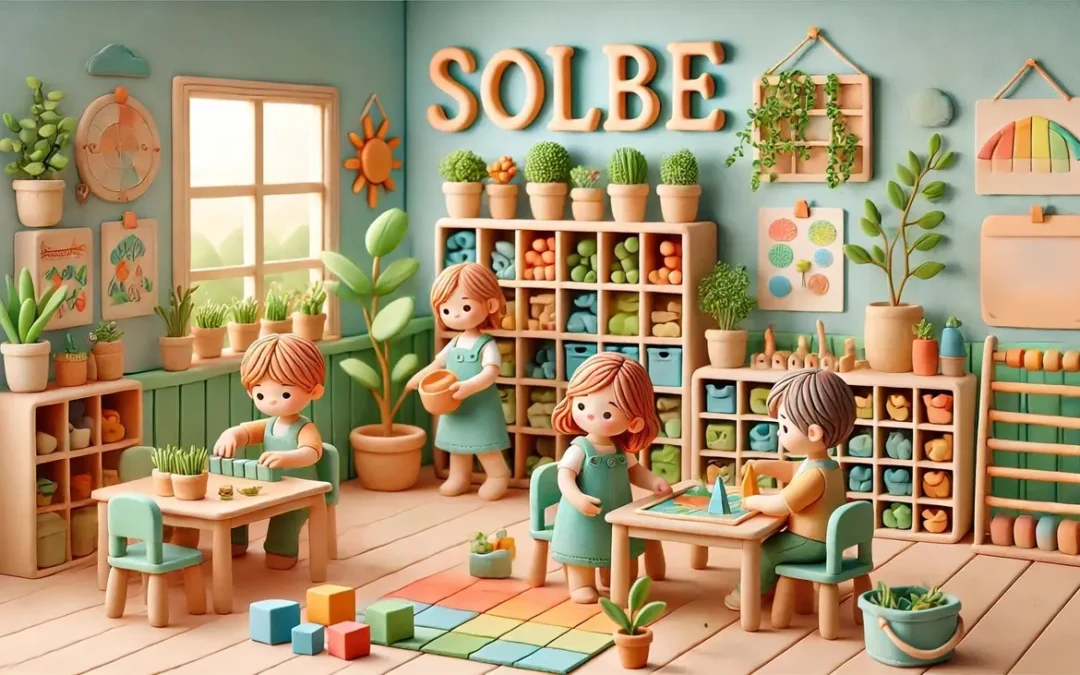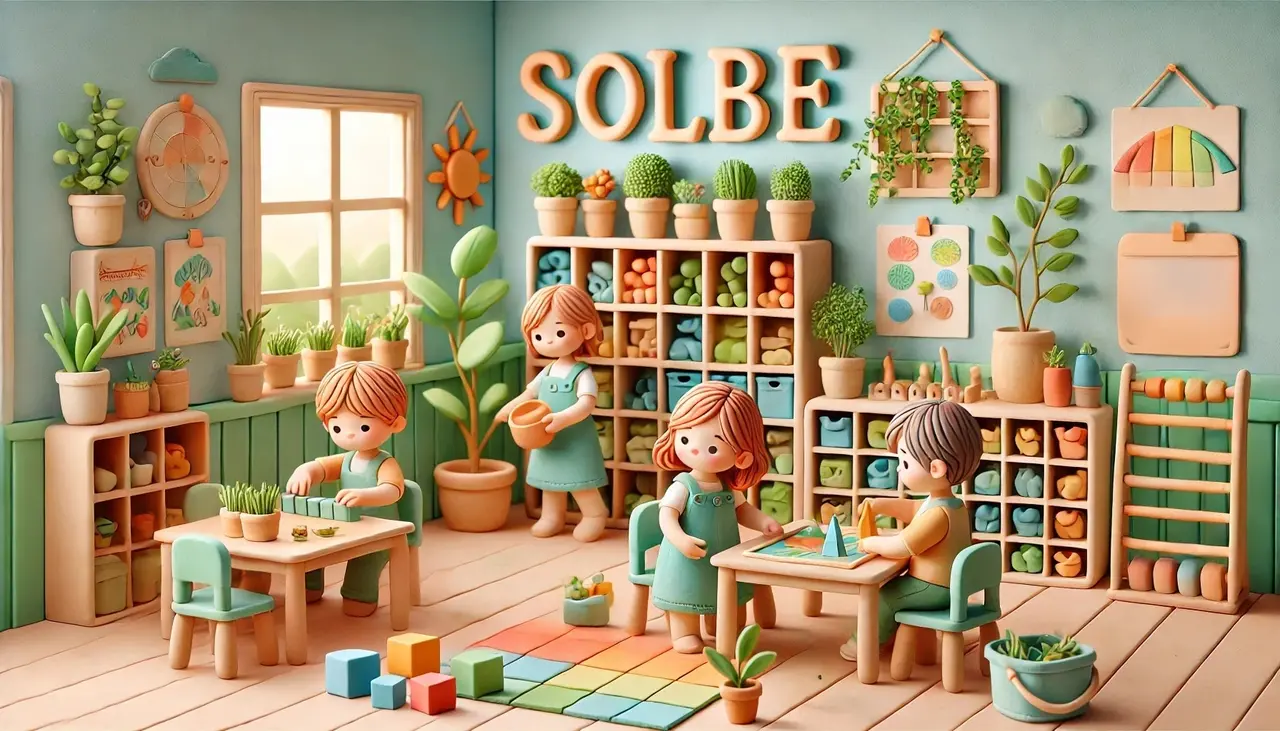Choosing the right educational path for your child can be a daunting decision. With various philosophies and methodologies to consider, one approach stands out for its unique benefits – the Montessori method. In this blog, we’ll explore why Montessori schools are an excellent choice for early childhood development.
Understanding the Montessori Philosophy
The Montessori philosophy, founded by Dr. Maria Montessori, is based on the belief that children are naturally curious and capable of initiating learning in a supportive and well-prepared environment. This educational approach values the development of the whole child – physical, social, emotional, and cognitive.
Central to this philosophy is the idea that learning should be self-directed. Dr. Montessori observed that children learn best when they are allowed to explore subjects that interest them at their own pace. This leads to deeper engagement and a more profound understanding of the material. Thus, Montessori classrooms are designed to provide a range of activities that children can choose from, fostering an exploratory learning environment.
This philosophy extends beyond mere academic learning. It emphasizes the importance of all aspects of a child’s development, including social skills and emotional well-being. By creating a nurturing and respectful environment, Montessori educators help children develop a strong sense of self and a lasting love for learning, which is foundational for lifelong success.
Individualized Learning
One of the key benefits of Montessori education is its emphasis on individualized learning. Unlike traditional classrooms where teaching is often directed at the entire group, Montessori classrooms allow children to work at their own pace. This personalized approach ensures that each child’s unique needs and abilities are met, fostering a love for learning.
In a Montessori classroom, learning materials are tailored to different developmental stages and interests. Children can engage with hands-on activities that are specifically designed to promote understanding and retention. This individualized approach allows teachers to observe and support each child’s growth, providing guidance when necessary while allowing for independent exploration.
Another significant aspect of individualized learning in Montessori schools is the use of mixed-age classrooms. This dynamic environment allows younger children to learn from older peers, while older students reinforce their knowledge by teaching concepts they have already mastered. This system not only enhances academic learning but also fosters a sense of community and mutual respect.
Fostering Independence
Montessori schools place a strong emphasis on independence and self-directed activity. Children are encouraged to make choices about their learning, which helps them develop decision-making skills and confidence. This independence nurtures a sense of responsibility and prepares them for future academic and life challenges.
The Montessori method believes that children are inherently motivated to learn when they feel a sense of autonomy and control over their environment. This is why everyday tasks like setting the table, watering plants, or organizing materials are integrated into the curriculum. Performing these tasks gives children a sense of accomplishment and pride in their abilities, further reinforcing their independence.
Furthermore, the independence fostered in Montessori schools extends to problem-solving and conflict resolution. Children learn to handle their issues constructively instead of relying solely on teacher intervention. This skill is invaluable as it builds resilience and prepares children to navigate complex social situations in the future. Visit our Montessori-inspired learning center to learn more about how we cultivate independence in our students.
A Prepared Environment
The Montessori classroom, often referred to as the ‘prepared environment’, is designed to support independent learning and exploration. Classrooms are equipped with specially designed materials that promote hands-on discovery and experiential learning. This environment encourages children to engage with activities that interest them, leading to deeper understanding and retention of knowledge.
In a prepared environment, everything has a purpose and a designated place, which promotes a child’s ability to organize and manage their activities. Teachers meticulously arrange learning stations to ensure they are inviting and accessible, enabling children to move freely and select activities that pique their interest. This approach not only nurtures independent learning but also instills a love for cleanliness and order.
One of the unique features of a Montessori classroom is the open access to a variety of learning materials. These materials are not just visually appealing but also designed to isolate particular skills or concepts, allowing children to explore these ideas slowly and thoroughly. By engaging all their senses, children can experience a holistic form of learning that is more impactful and memorable.
Promoting Social Skills
Montessori education emphasizes social development as a key component of early childhood learning. Mixed-age classrooms allow older children to mentor younger ones, fostering a sense of community and cooperation. Children learn important social skills such as communication, empathy, and conflict resolution in a natural, supportive environment.
In these settings, children learn by observing their peers, which can be far more impactful than direct adult instruction. When a child sees someone slightly older performing a task, it inspires them to try it themselves. This kind of social learning is vital for developing a sense of belonging and collaboration, essential skills for future personal and professional relationships.
Moreover, the Montessori approach emphasizes emotional intelligence. Children are encouraged to express their feelings and understand the emotions of others, cultivating a deep sense of empathy and social justice. This foundation helps build compassionate adults who can contribute positively to their communities. To learn more about the social benefits of Montessori education, explore this article.
Encouraging a Lifelong Love of Learning
Perhaps one of the greatest benefits of Montessori education is its ability to instill a lifelong love of learning. The method’s focus on curiosity, independence, and hands-on exploration not only helps children absorb information more effectively but also makes learning a joyful and rewarding experience. This positive attitude towards education can last a lifetime.
In a Montessori classroom, children are not passive recipients of information. Instead, they are active participants in their learning journey. By encouraging children to pursue their interests and solve problems independently, Montessori education creates a deep-seated enthusiasm for learning. This intrinsic motivation is a powerful tool that can drive academic and personal success throughout life.
The Montessori method also places a high value on creativity and innovation. By allowing children the freedom to explore and experiment, it fosters an environment where creative thinking can flourish. This ability to think outside the box is crucial in today’s rapidly changing world, where adaptability and problem-solving skills are highly prized. For more information on how curiosity and creativity are incorporated into Montessori education, visit The Curious & Creative Classroom.
Why Montessori Schools Are a Wise Choice for Early Education
Montessori schools offer a distinctive and effective approach to early childhood development. By emphasizing individualized learning, fostering independence, and cultivating a natural love for learning, the Montessori method equips children with the skills they need to thrive both academically and personally. If you’re considering educational options for your young child, a Montessori school might just be the perfect fit.



